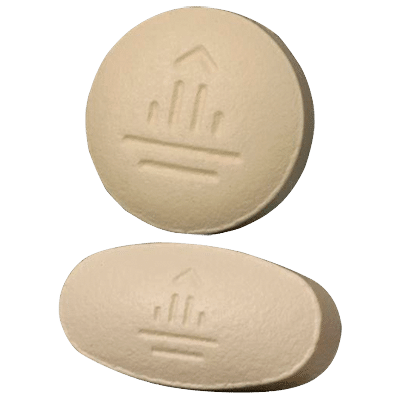I took doxycycline for acne as recommended by my doctor. I felt a little nauseous the first few days, but it went away. The effect was noticeable within a week; my skin became clearer and smoother.

Doxycycline
- Quality products
- Support 24/7
- Fast delivery
About this medicine
Doxycycline is a synthetic, broad-spectrum antibiotic derived from tetracycline. It is used to treat a variety of bacterial infections, including urinary tract infections, acne, gonorrhea, chlamydia, periodontitis (gum disease), and conditions such as spots and rashes. It is particularly effective in treating acne-like lesions associated with rosacea. Its remarkable activity against many bacteria makes it popular in medical practice for a variety of infections. As a drug reviewer, its important to emphasize that Doxycycline is often the first line of defense in the fight against these conditions.
Composition of the medicine
Doxycycline contains the active ingredient doxycycline, which belongs to the class of tetracycline antibiotics. It is this ingredient that provides the drugs antibacterial action by disrupting protein synthesis in bacterial cells, leading to their death. It is important to note that the drug is available in several forms, including capsules and suspensions, allowing for the most convenient administration method for different patients.
In addition to the active ingredient, the composition may also contain excipients. These include various fillers that affect the stabilization of the drug and its absorption by the body. Here are some of them:
- Microcrystalline cellulose
- Magnesium stearate
- Titanium dioxide
These additional components help ensure optimal absorption and stability of Doxycycline under various storage and application conditions.
Usage and dosage
Using Doxycycline requires some familiarity and following the instructions to achieve the best effect. There are several key points to remember to avoid discomfort and complications while taking the medication.
1. Take Doxycycline after meals with a large glass of water. This will help avoid esophageal irritation.
2. A single dose should be taken once daily or divided into two doses, 12 hours apart.
3. Never take more than the recommended dose or exceed the recommended treatment period. Avoid interactions with dairy products.
4. Do not chew or crush the sustained-release capsules; swallow them whole.
5. If the medication is a suspension, shake the bottle well before use and use a measuring spoon for dosing.
These simple rules will help you use the medication effectively and minimize the risk of adverse reactions.
How does this medicine work?
Doxycyclines mechanism of action is based on its ability to inhibit protein synthesis in bacterial cells, which halts their growth and reproduction. The drug penetrates the bacterial cell and binds to its ribosomes, preventing further formation of vital proteins. This causes the bacteria to lose their ability to maintain cellular functions, leading to their death.
I have personally observed that this approach makes it possible to combat not only acute infections but also chronic diseases caused by treatment-resistant microorganisms. This distinguishes Doxycycline from other antibiotics and makes it indispensable in medical practice. Another important aspect is that the drug is used to treat infections caused by a wide variety of bacterial species, allowing for effective treatment of many diseases.
Indications for use
Doxycyclines indications are broad and include a variety of infectious diseases that can affect various body systems. This antibiotic is considered an effective treatment for infections caused by susceptible bacteria. Among these, specific situations where Doxycyclines use is most appropriate include:
- Upper and lower urinary tract infections
- Treatment of acne and rosacea
- Sexually transmitted infections such as gonorrhea and chlamydia
- Periodontitis and other dental infections
- Respiratory infections and infectious skin lesions
These indications make the drug extremely useful and allow its use in a wide range of clinical scenarios.
Contraindications for use
Contraindications to Doxycycline should be considered, as they can cause adverse effects if used incorrectly. Like many other medications, Doxycycline has a number of limitations that are important to be aware of and consider in your personal practice.
- Hypersensitivity to doxycycline itself or other tetracyclines
- Pregnancy, especially in late pregnancy
- Breastfeeding
- Children under 9 years of age
- Liver dysfunction, especially severe
These contraindications indicate the need to consult a doctor before starting treatment to avoid potential risks.
Side effects
Side effects from Doxycycline can vary in severity, and its important to be aware of the potential risks before starting therapy. Despite its effectiveness, the drug is not without side effects that should be considered.
- Headaches and dizziness
- Digestive upsets, such as nausea or vomiting
- Skin reactions, including rash and itching
- Changes in blood counts, such as anemia or leukopenia
- Signs of liver damage, including yellowing of the skin and mucous membranes
If such symptoms occur, it is recommended to consult your doctor for treatment adjustments and appropriate measures.
Frequently asked questions
Doxycycline Reviews and Experiences
Ive been using Doxycycline for a long time. I took it to treat cystitis. It helped quickly, with virtually no side effects. The only downside is that it requires sun exposure.
I used Doxycycline as prescribed by my doctor for a respiratory infection. I felt better after the first pill, and there were no further side effects. I was completely satisfied with the results.








